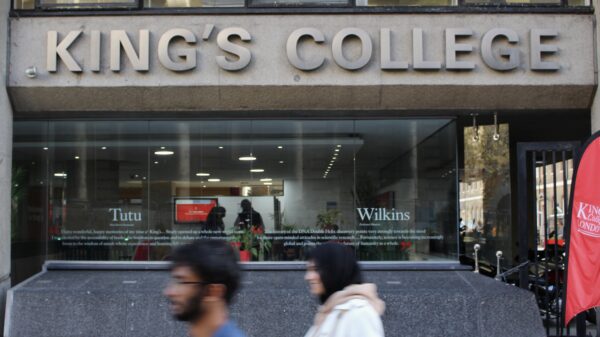Despite its flaws, Extinction Rebellion’s civil disobedience tactics are a much-needed wakeup call, argues Roar commentator Patrick Sandbach, going against Roar commentator Ryan Chan’s piece on the futility of radical climate activism.
Extinction Rebellion has been in the spotlight for its dramatic acts of civil disobedience in the face of the climate crisis. Anyone walking through central London would struggle to miss the crowds of protestors, many of whom are willing to have their names permanently marked by a criminal record in order to demonstrate their commitment to their cause.
But the movement has not avoided its fair share of criticism. The “uncooperative crustiesâ€, as they were dubbed by the PM, have been branded hypocrites by opponents who argue that Extinction Rebellion’s tactics do more to toxify the climate debate than further it.
Such an argument misses the most central point of XR’s message, which is that the debate ended long ago. Public support for climate action is no longer what’s lacking – it is governments which must now play their part. Civil disobedience, though it may have its opponents, maintains the vital pressure needed for change.
Scientists support XR
First, it is (unfortunately) necessary to take a moment to address allegations that the crisis is not as serious as we thought. A document previously cited in a Roar article titled “There Is No Climate Emergency†was co-written by, among others, climate change deniers Guus Berkhout and Viscount Monckton of Brenchley. Berkhout heads the oil-backed science-denial organisation CLINTEL, and Monckton is an advisor to the infamous Heartland Institute, the world’s leading climate change denial lobbying organisation which receives its funding from ExxonMobil and the Koch brothers.
It’s hard to think of a more clear conflict of interests, and it’s dangerous to lend credence to these unscientific arguments. It would be far more sensible to listen to the 97% of scientists who agree that climate change is human-caused and the hundreds who support Extinction Rebellion’s direct action.
Though governments are showing signs of movement – the UK has adopted a legally binding commitment to net zero emissions by 2050, the first of its kind anywhere in the world – global emissions continue to rise. There’s soot on the hands of the UK, too, with the government cutting solar subsidies and pushing hard for fracking exploration. Though purported to be relatively clean, the often-discounted methane emissions involved make fracking more polluting than coal. Even in the face of catastrophic climate change, governments don’t yet seem prepared to set an example and give up fossil fuels.
Quite clearly, what we need is not “less politics, more science†– it’s the political side that is lacking.
Cheap criticism

Photo by Patrick Sandbach
Non-violent civil disobedience has an important role in any response to this crisis. It is a powerful tool precisely because it requires a response from authorities. While permitted protest is valuable, those who seek to make a change, from Gandhi to Rosa Parks, have known that you have to confront power directly to really be taken seriously.
With non-violence, this can be done without anyone suffering more than an inconvenience (protestors are at pains to ensure that emergency services are allowed through crowds to help those in need). A detour on your commute is surely a fair price to pay for action on climate change.
Allegations of hypocrisy also seem like cheap criticism. The world we live in makes almost every daily action a source of pollution, from transport to eating to using the internet. It would be nit-picking to suggest that protestors travelling from afar to voice their concerns were thereby discrediting their cause. It is even more pedantic to argue that congestion created by protestors is a greater danger than staying indoors while business-as-usual carries us towards disaster.
Extinction Rebellion is not without fault
All this in mind, XR is not without its flaws. There are indications that frustration with XR is rising, in large part due to its disruptive nature, and many have criticised the vagueness of their demands. Some of its actions have been counterproductive – for example, the blocking of DLR trains, a comparatively clean form of transport, sent a particularly confusing message. The organisation must not turn a blind eye to this, and such plainly contradictory acts are probably best avoided.
Crucially, though, it seems that the battle for public support for climate action is won – 78% of Brits support an international effort to reduce emissions, a figure which is reflected in the global average. What matters now is getting the government to listen, a process which is slowly making ground.
The Radical Flank Effect suggests that more extreme movements, while sometimes unappealing to the broader public, tend to force the negotiation of a more moderate response. Civil disobedience has a vital role in keeping climate change high on the agenda. If that means upsetting a few commuters, it’s a small price to pay.


















